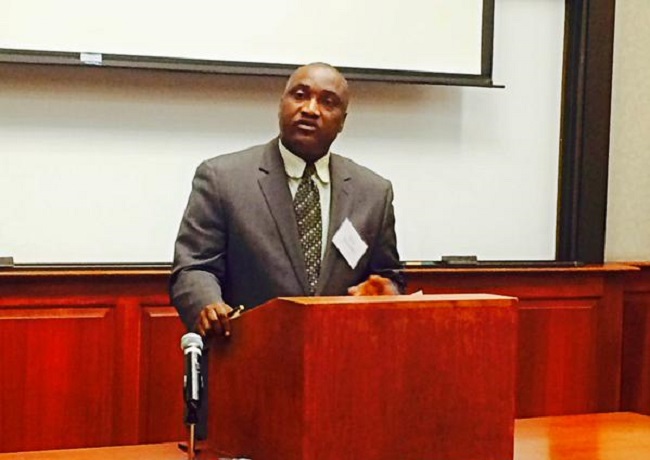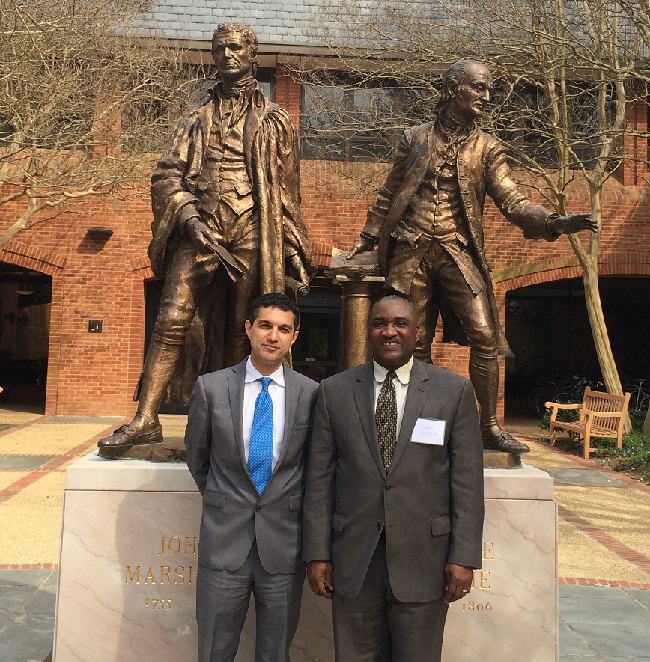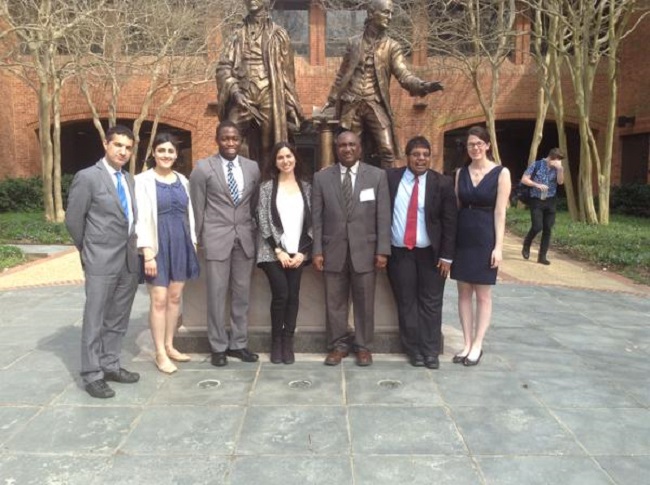Ebola exposed global insensitivity to Africa

Mr. Slewion said the international community should not abandon its moral responsibility in critical times
The recent Ebola outbreak in West Africa has exposed the global failure and insensitivity of the international community to health crisis in poor African countries, says Sam Slewion, a social justice activist and social work practitioner.
Mr. Slewion said while substantive progress is being made to contain the Ebola outbreak in the three affected West African countries, Liberia, Guinea and Sierra Leone, the international community, especially the World Health Organization (WHO), should learn from this situation and not abandon its moral obligation when needed in such critical time as the worst Ebola outbreak since the virus was first discovered in 1976 in Zaire, now known as the Democratic Republic of Congo.
Mr. Slewion, who is Associate Professor and Chairman of the Social Work Department of the United Methodist University (UMU) in Liberia, made the assertion on Friday, April 3, when he served as one of four panelists at a recent panel organized by the Comparative Legal Students Scholars (CLSS), which is a student division of the William and Mary Law School in Williamsburg, Virginia, USA, under the theme:” Healing the Rift.” The law school is the oldest law school in the United States.
Other members of the panel included Jeffrey Apperson, Vice President of NCSC International, Ms. Gissou Nia, Deputy Director at the International Campaign for Human Rights in Iran and Dr. Kaveh Khosnood, Associate Professor of Epidemiology at Yale School of Public Health.
He told the audience, comprising mainly law students and faculty, that the theme of the forum-Healing the Rift, implicitly requires of the panelists to retrospect about the health crisis in certain regions of the world and perhaps determine how everyone can make their modest contributions to healing the emotional scars and instituting measures to prevent or minimize a reoccurrence of the crisis.
“However, in my line of work as a professional social worker and social justice activist, I believe that to every presenting problem, there is an underlying cause(s). Therefore, it is only fair that in order for us to heal the rift, we must first examine the factors that attributed to the rift in the first place,” he intimated.
Mr. Slewion, who is also Director of the Center for Community Advancement and Family Empowerment(CECAFE) of the UMU, said the health crisis began on March 14, 2014 in Guinea, West Africa and was officially declared an Ebola outbreak on March 22, 2014 with an alarm by MSF to the international community to respond effectively before it spiral out of control, but the WHO on April 1, 2014, questioned the alarm raised by MSF and denied that there was an outbreak of Ebola in the region, adding “this was not only the beginning of institutional denial by the international community, but failure of institutions, governments and the international community and they did, with tragic and avoidable consequences,” which caused the pestilence to take the lives of over 10,000 persons and infect over 25,000 persons in eight countries, including the United States and Spain.
However, he noted that this international denial which is tantamount to insensitivity continued until August and September, 2014 when WHO on August 8, at last declared the outbreak a “public health emergency of international concern,” and the United States upscale its involvement in mid-September when the “virus without border” infected two Americans working for Samaritan purse in Liberia and they were evacuated to the US for medical care, manifesting that the first case of Ebola had crossed the ocean and Ebola has now become an international security threat and no longer a humanitarian crisis affecting a handful of poor West African countries.
He said while the world appreciates and embraces the recent knowledgement by WHO of its failure to respond to the health crisis in a timely manner evident by the setting up of a Review Panel to examine its role in the Ebola outbreak, this action can only be comforting once the full report of the Panel is publicly disclosed, hold accountable the international community for such a colossal failure and institute measures to prevent such global failure in the future.
It can be recalled that recently World Health Organization (WHO) Secretary-General, Dr. Margaret Chan commissioned an independent expert panel to assess its response to the Ebola outbreak, which has been tasked with presenting its first report at the World Health Assembly in May. In 2010 the WHO took a similar step in appointing an external committee to review its response to the 2009 H1N1 influenza pandemic.
The WHO and other groups have faced criticism for a slow response to West Africa’s Ebola outbreak, but some have defended the agency, suggesting that it is overstretched and lacking in the logistical capacity to manage what morphed into one of the largest public health crises the world has ever experienced. A host of countries, organizations, and experts have called on the WHO to take a bigger role as the world’s top health emergency responder.
In a statement, the WHO said the 6-member panel will be chaired by Dame Barbara Stocking, who spearheaded major humanitarian responses while she led Oxfam GB from 2001 through 2013. She is currently president of Murray Edwards College at the University of Cambridge.
The panel’s other members are Carmencita Alberto-Banatin, MD, MHA, a former health official with the Philippines government who is now an independent consultant and advisor on health emergencies and disasters Julio Frenk, MD, MPH, PhD, former Mexican health minister who is dean of faculty at Harvard T.H. Chan School of Public Health in Boston, Ilona Kickbusch, PhD, director of the global health program at the Graduate Institute of International and Developmental Studies in Geneva, Jean-Jacques Muyembe-Tamfun, PhD, a virologist and Ebola expert who is director-general of the National Institute for Biomedical Research in the Democratic Republic of Congo , Faisal Shuaib, MD, DPH, head of Nigeria’s National Ebola Emergency Operations Center.
A resolution passed during a special session on Ebola at the WHO executive board meeting in January prompted Chan’s appointment of the panel. At that meeting, the board approved several proposals for improving its response to global health emergencies, including a contingency fund and reforms to improve logistics and staffing.
In conclusion, Mr. Slewion praised the administration and students of the William and Mary Law School for organizing and hosting the panel as a public awareness that the Ebola outbreak needs to be on our radar until every single person in contact with someone infected with Ebola is identified and the three affected West African countries are declared Ebola-free.
He said we all have a moral obligation to ensure that globally we are prepared to respond to another international health crisis to ensure that it does not reach the magnitude of destruction that we witnessed as a result of the Ebola outbreak in the West African region. “All of us can contribute to healing the rift and you are already making your contribution manifested by the holding this public awareness event today,” he quipped.



